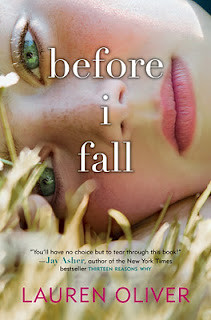This is not a scary story.
I feel like I needed to start with that, because looking at it head-on, revision can seem awfully bloodthirsty, and also like it wants you dead.
But your manuscript (my manuscript) is not some shambling monster, even when it kind of looks like one. It is not faster, stronger, or smarter than you (me).
Sometimes, you might leap to the daunting conclusion that it’s meaner, but that’s only because you’re feeling exhausted and overwhelmed. You let a few scenes get totally out of hand, and now the whole thing is well on its way to turning into one of those hideous fast zombies. You can hear the manic flurry of approaching footsteps, but have no idea what direction it’s coming from, which is insanely scary.
Do you know how to stop a fast zombie? Set it on fire.
Except, figuratively. The main point I’m trying to make is that even when you (I) feel like the situation has gotten very bad very quickly, there’s still a solution somewhere. So don’t actually set fire to your manuscript. That would be dangerous and irresponsible. Plus, it’s almost always unnecessary.
(Also, because I grew up watching Romero movies, I tend to use a lot of zombie/shopping mall/shotgun metaphors. I should probably stop.)
The thing is, it’s difficult to talk about revision in any sort of umbrella-way, because there’s not a one-size process. It depends on the writer, and on the book, and even though it’s pretty easy to hit up the internet for some blanket guidelines, the actual revising part is really personal. (There is no one-size-fits-all zombie apocalypse.)
So, instead of a neat set of precise step-by-step instructions, here is one big fat paragraph of generalization:
There’s a point in the lifespan of most stories—almost always sometime after the first draft—when the situation gets really ugly really fast. Suddenly, the flaws are taking over, seeping into the cracks, covering up every scrap of brilliance and goodness and light, and it’s up to you to put on your flak jacket and save your made-up world. And this isn’t easy, because all at once, the problems are EVERYWHERE. Maybe you hate the pacing. Or you hate the way that subplot plays out. Or you wish the characters were different people and the setting was glossier and the kiss happened on page 64 and the title wasn’t stupid.
To be clear, this is usually the place where I completely rewrite the book (burn it down), because the whole scenario just seems incredibly dire, and my default survival mode is to panic and start hacking up the place indiscriminately. In light of this, what I say next is going to sound kind of strange.
Revision is my favorite part of writing.
Seriously, it’s where all the good stuff happens. Everything that came before is just a big, sprawling mess of words and ideas. But once revision sets in, there’s hope for a better brighter future (one that actually makes sense). You discover meaning and nuance where there was none, and that those two characters should actually be combined. You realize that you’ve said the same thing three times, and you probably only need to say it once. And these are all realizations that improve a book.
There are a lot of different kinds of revision—big parts and little ones. Some people do all the parts all at once. They’ll overhaul a character or refine a plot point, while also making all the sentences the best sentences ever.
This is not how I do it. Which is kind of weird when you think about it, since I can usually be counted on to pick the most complicated thing (sewing patterns, recipes, friends). When it comes to revising though, I try to do all the big structural stuff first, and then the character development, and then go through and look at the scenes and sentences to decide if I like them, or which ones I would rather have. Then, once the last good sentence is in place, the book is done.*
This was supposed to be a how-to post, but I don’t know how.
I mean, I know how for me, but not for you, because you’re different. Your book is different.
There’s only one thing I can actually tell you—one overarching rule about revision, which is that you have to be willing to do it.
Also, I lied. There is one other thing I can tell you.
No matter how hard the work is, you don’t have to be scared of your book. Revision is safe. It’s basically a no-risk proposition. Computers make adding and tracking changes so, so easy. When you rewrite a paragraph or gut a whole scene, or rip out 50 pages, or 100, it’s not like painting over something precious—those pages are still there, and you can always go back to the earlier version if it turns out that you’ve made some terrible mistake. Mostly though, you haven’t. Mostly, you did the right thing, even if it was hard.
In the end, it’s all going to turn out okay. The quirky genius scientist finds a cure and the dog doesn’t die.
But first, it’s going to be kind of complicated and bloodthirsty.
And that’s fine.
*Until I look through it again, and realize that it’s not. (Sometimes writing a book takes a long time.)







